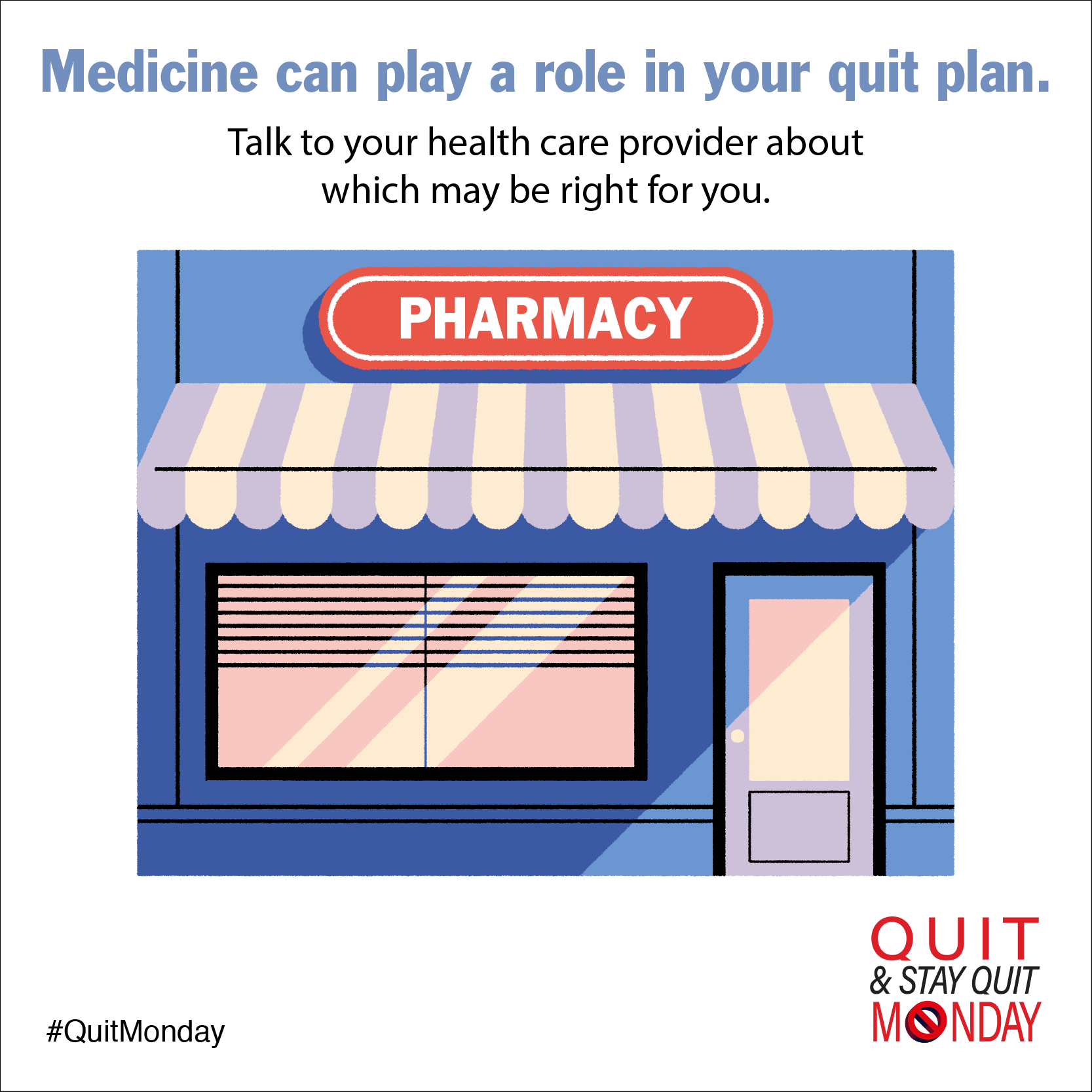New Ways to Make Your Nicotine Replacement Therapy More Effective
Quitting smoking isn’t easy, but some of the most important tools in the fight against tobacco addiction are nicotine replacement therapies (NRTs).
Some of the NRTs can help reduce withdrawal feelings by giving you a small controlled dose of nicotine. Research shows that NRTs are safe and that they can dramatically increase your chances of a sustained quit.
But not all NRTs are created equal. Depending on your current smoking levels, doctors may recommend a selection of nicotine delivery systems and dosages. Many of these can be purchased over-the-counter at your local pharmacy such as a patch, gum, or lozenge, but other NRTs including inhalers, nasal sprays and pills must be prescribed.
The Center for Disease Control and Prevention (CDC) recently released new approaches regarding the usage of NRTs, and how they can be successfully incorporated into your quit plan. This Monday, recommit to your quit with some new NRT medicine strategies.
Use more than one NRT medicine:
Combining NRT medicines can increase your chances of quitting for good. Using a nicotine patch in the morning can help reduce urges throughout the day, while chewing a piece of nicotine gum or lozenge can counter sudden cravings.
Ask your doctor about Varenicline:
Varenicline (also known as Chantix and Champix) is a smoking cessation pill that has shown early success in reducing smoking urges and making smoking less pleasant. Varenicline does not contain nicotine and requires a prescription, so ask your doctor if the pills are right for you.
Add counseling to your quit plan:
Talking through smoking triggers can help you prepare for them when they arise. Using counseling in combination with NRTs can improve their effectiveness.
Plan ahead with NRTs:
Using an NRT—like a patch, gum or pill—before you quit can ease your tobacco cessation process. It is recommended to start some NRTs 1 or 2 weeks before your scheduled quit date, but make sure to confirm with your doctor when you should begin taking any form of medicine.
